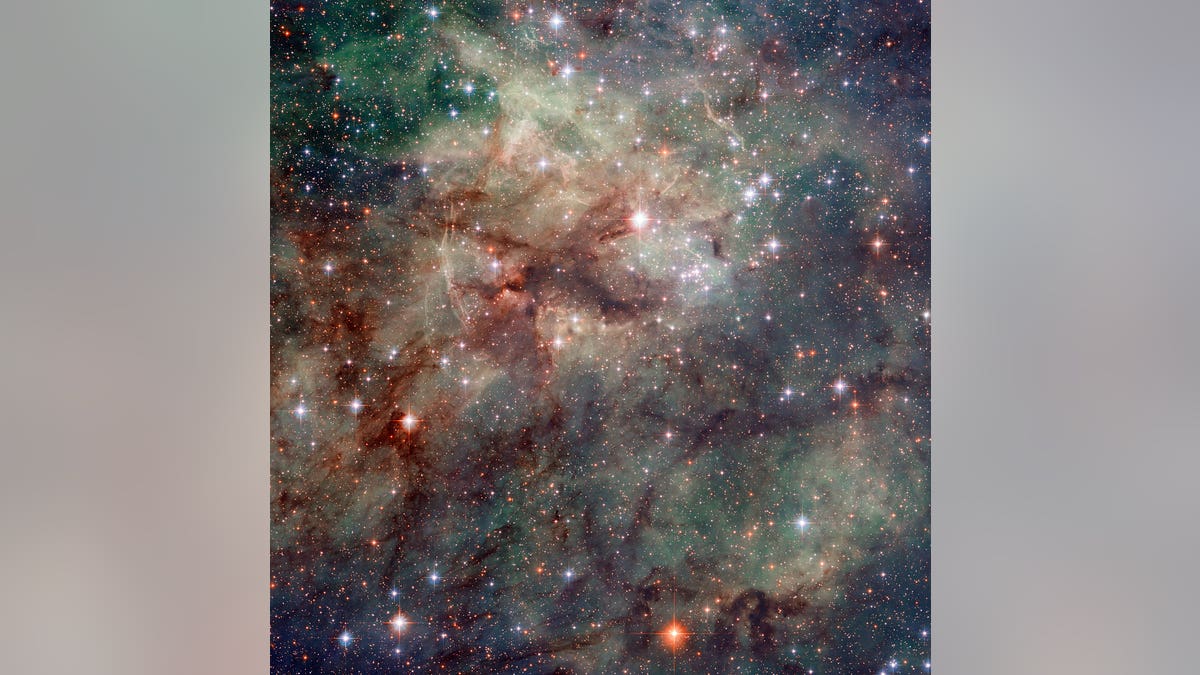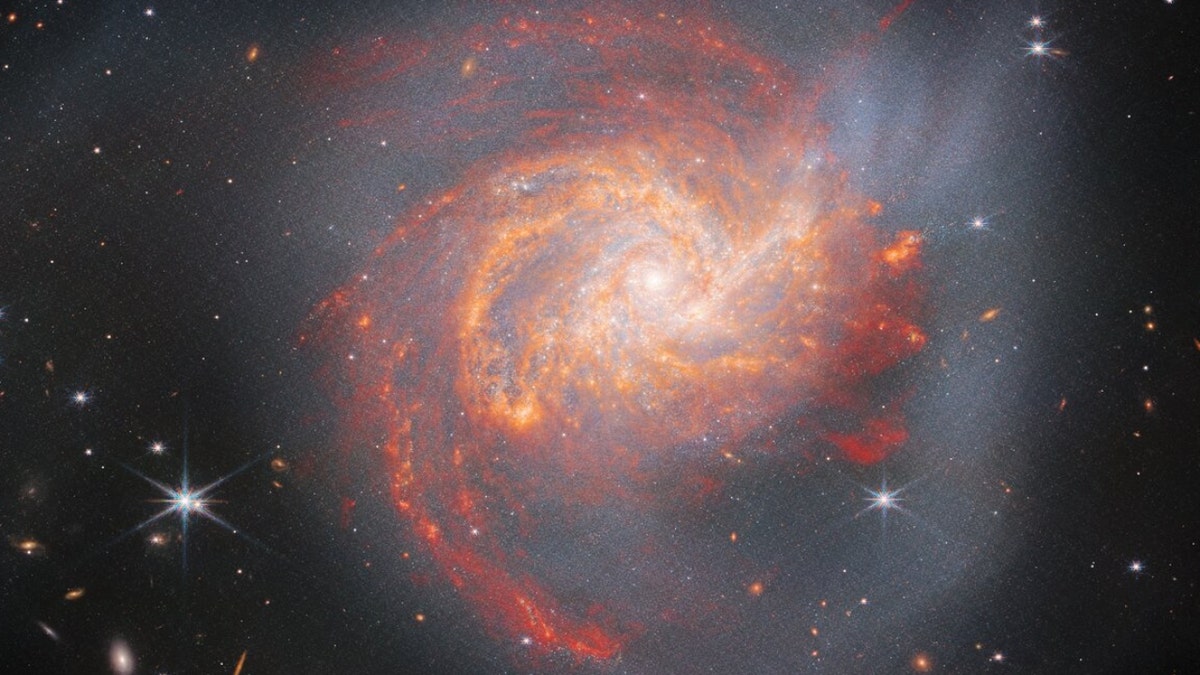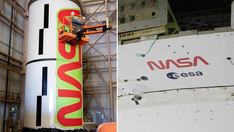It’s ‘fun’ to see people go into space: retired astronaut
Terry Virts discusses the first all-European crew’s mission to the ISS on "Your World."
Astronomers have proposed a new theory to suggest why our universe is expanding at an accelerating rate.
That our universe is expanding is in wide agreement, though how exactly that process happens is not as well understood. Scientists believe that an elusive substance called "dark energy" is responsible for driving the expansion.
But the very existence of dark matter is only ever discussed in the context of an expanding universe, leading some to question whether there are other causes of expansion.

This image shows a star-forming region of ionized hydrogen gas in the Large Magellanic Cloud, a small galaxy that neighbors the Milky Way. (NASA/ESA)
A study published in the Journal of Cosmology and Astroparticle Physics, has proposed that the universe’s expansion is driven by merging with smaller, "baby" universes.
The study’s lead author, Jan Ambjorn, told LiveScience that the study’s main finding was that the "accelerated expansion of our universe, caused by the mysterious dark energy, might have a simple intuitive explanation, the merging with so-called baby universes, and that a model for this might fit data better than the standard cosmological model."
The "Standard Cosmological Model" is the main theory of cosmic evolution, that the universe began with the Big Bang, went through a near-exponential inflation at early times, and has been expanding ever since.
While the latest study is by no means the first to propose the idea of multiple universes, it offers a mathematical model to show how merging with other, smaller universes might expand our universe.

The peculiar galaxy NGC 3256 dominates this image from the James Webb Space Telescope. (ESA/Webb, NASA & CSA, L. Armus, A. Evans)
By quantifying the rate of expansion, their calculations more closely aligned with observations of the universe than the Standard Cosmological Model.
The researchers also suggested that early cosmological inflation – the quick, rapid expansion of our universe after the Big Bang – may have been caused by our young universe colliding with a larger universe.
CLICK HERE TO GET THE FOX NEWS APP
They proposed that after this possible absorption, it is likely that our, now-larger universe went on to collide with and absorb other "baby" universes.










































